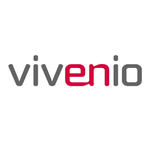Description

EventsCase

Oxford Abstracts
Comprehensive Overview: EventsCase vs Oxford Abstracts
EventsCase and Oxford Abstracts Overview
a) Primary Functions and Target Markets:
EventsCase:
- Primary Functions: EventsCase is an all-in-one event management platform that streamlines the organization of conferences, exhibitions, and corporate events. It offers a suite of tools including event registration, ticketing, networking solutions, an event website builder, mobile apps, and tools for managing event content and attendee engagement.
- Target Markets: EventsCase primarily targets corporate sectors, event organizers, associations, and agencies. It's ideal for medium to large-scale events that require a robust suite of management tools to coordinate complex logistics and attendee management.
Oxford Abstracts:
- Primary Functions: Oxford Abstracts specializes in abstract management, providing features for submission, review, and scheduling of abstracts and papers. This can include peer review processes, abstract book generation, and integration with conference planning. It also offers participant management and engagement tools.
- Target Markets: Oxford Abstracts is mainly used in the academic sector, catering to academic conferences, congresses, and scholarly meetings where management of large volumes of abstracts and papers is necessary. It primarily serves universities, research institutions, and professional associations.
b) Market Share and User Base Comparison:
-
Market Share: Both platforms serve different niche markets within the broader event management software industry. EventsCase, with its comprehensive event management capabilities, competes in a wider range of sectors and thus generally commands a larger market share compared to Oxford Abstracts, which is more specialized.
-
User Base: In terms of user base, EventsCase potentially has a broader and more diverse set of users due to its applicability across various types of events beyond academic settings. Oxford Abstracts may have a smaller but very focused user base, composed mainly of academic institutions and scholarly event organizers. Exact market share and user base figures can vary and should be determined through detailed market research and current analytics.
c) Key Differentiating Factors:
-
Scope of Functionality:
- EventsCase offers a broad spectrum of event management tools, covering virtually all aspects of event logistics and attendee interaction. Its strength lies in providing an integrated solution for larger events requiring diverse functionalities.
- Oxford Abstracts, on the other hand, focuses specifically on the management of abstracts and academic content, offering specialized tools for submission, peer review, and scheduling that are tailored to the needs of academic events.
-
Target Audience Needs:
- EventsCase is built to serve a range of industries, so it’s designed to be flexible and scalable, accommodating various event formats and complexities.
- Oxford Abstracts is tailored towards academic events, providing unique features that cater to the workflow of academic conferences, such as flexible abstract workflows and integration with academic journals and societies.
-
User Experience and Customization:
- EventsCase emphasizes seamless user experience with customizable branding and adaptable templates for event websites and mobile apps, offering branded solutions for corporate identity.
- Oxford Abstracts focuses on ease of use and efficiency in abstract handling, providing tools specifically designed for researchers and academics with straightforward submission processes and data management capabilities.
Overall, while both platforms aim to simplify event management and enhance attendee experiences, they cater to distinct segments and prioritize different aspects of event interactions. Organizations should consider their specific needs, especially in relation to event type and audience, when choosing between the two.
Contact Info

Year founded :
2012
+44 20 3608 6645
Not Available
United Kingdom
http://www.linkedin.com/company/eventscase

Year founded :
Not Available
Not Available
Not Available
Not Available
Not Available
Feature Similarity Breakdown: EventsCase, Oxford Abstracts
When comparing event management platforms like EventsCase and Oxford Abstracts, it's essential to evaluate them based on their core features, user interfaces, and any unique capabilities that set them apart. Here's a breakdown based on these criteria:
a) Core Features in Common
Both EventsCase and Oxford Abstracts offer a suite of features tailored to streamline event planning and management. Common core features include:
-
Event Registration and Ticketing: Both platforms provide tools for seamless event registration and ticketing processes, allowing users to customize registration forms and track participant data.
-
Abstract Management: As both platforms are used in academic and professional conferences, they support abstract submission and review processes, enabling organizers to manage and evaluate submissions efficiently.
-
Agenda and Scheduling: EventsCase and Oxford Abstracts offer agenda-building tools, facilitating the creation of detailed event schedules and session planning.
-
Networking and Engagement Tools: Each platform includes features to enhance attendee engagement, such as networking tools, chat functionalities, and interactive sessions.
-
Analytics and Reporting: Both platforms provide analytics tools to measure event success and generate reports on various metrics like attendance, engagement, and feedback.
b) User Interface Comparisons
The user interfaces of EventsCase and Oxford Abstracts have their own unique designs and user experience philosophies:
-
EventsCase: Known for its clean and modern design, EventsCase offers an intuitive interface that emphasizes ease of use. The platform tends to focus on providing a user-friendly experience with drag-and-drop features and customizable dashboards, making it accessible for users with varying levels of technical proficiency.
-
Oxford Abstracts: While also user-friendly, Oxford Abstracts often presents a more academic-oriented interface, reflecting its specialization in conference and abstract management. The interface is straightforward and functional, prioritizing efficiency and depth in handling complex abstract management workflows.
c) Unique Features
There are specific features that differentiate each platform:
-
EventsCase Unique Features:
- Customizable Event Website Builder: Offers a powerful website builder that allows event organizers to create fully branded event websites, often with a variety of templates and design options.
- End-to-End Event Management: Known for its holistic approach, EventsCase can manage both in-person and virtual events comprehensively, providing tools for streaming, virtual booths, and more.
-
Oxford Abstracts Unique Features:
- Robust Peer Review System: Particularly strong in managing the academic review process, Oxford Abstracts offers detailed configurations for peer review workflows, making it ideal for academic conferences that require rigorous review procedures.
- Integration with Academic Systems: Often integrates well with systems commonly used in academia, offering tailored solutions for educational institutions and research bodies.
In summary, while both platforms share several core features aimed at facilitating event management and attendee engagement, they cater to slightly different niches. EventsCase tends to offer a more rounded event management solution suitable for various types of events, while Oxford Abstracts excels in handling academic and abstract-heavy conferences with its specialized tools for organizing and reviewing scholarly content.
Features

Not Available

Not Available
Best Fit Use Cases: EventsCase, Oxford Abstracts
Both EventsCase and Oxford Abstracts are platforms designed to support the organization and management of events, but they have different features and strengths that make them suitable for a variety of use cases. Here’s a breakdown of the best fit use cases for each:
EventsCase
a) Best Fit Use Cases:
-
Corporate Events: EventsCase is well-suited for large corporate events, including conferences, product launches, and trade shows. Its comprehensive suite of tools can handle complex logistical needs and integrate seamlessly with existing corporate systems.
-
Hybrid and Virtual Events: With robust capabilities for both in-person and online event management, EventsCase is ideal for businesses looking to host hybrid events. This flexibility allows companies to reach wider audiences without sacrificing the quality of interaction.
-
International Conferences: Given its multi-language and multi-currency features, EventsCase is a great choice for organizations hosting international events that require global reach and adaptation to various markets and cultures.
Industry Vertical and Company Size:
- Verticals: Technology firms, marketing agencies, and training providers benefit from EventsCase's extensive customization and integration options.
- Company Sizes: Medium to large enterprises will find the scalability and comprehensive nature of the platform particularly beneficial.
Oxford Abstracts
b) Preferred Scenarios:
-
Academic and Scientific Conferences: Oxford Abstracts excels in environments where managing and reviewing a large number of research submissions is key. Its abstract submission and peer review features are tailored for these needs.
-
Symposiums and Workshops: Smaller-scale, focused academic gatherings benefit from Oxford Abstracts' streamlined processes for submission management and scheduling.
-
Association Meetings: Professional associations that host regular meetings to share research and insights will find Oxford Abstracts invaluable for handling submissions, organizing schedules, and facilitating peer reviews.
Industry Vertical and Company Size:
- Verticals: Universities, research institutions, and scholarly associations are the primary beneficiaries due to the platform’s focus on managing academic content and collaboration.
- Company Sizes: Small to medium-size organizations or departments within larger universities or institutions can leverage Oxford Abstracts’ targeted features most effectively.
Conclusion
While EventsCase focuses on providing a versatile, all-in-one solution suitable for broad-ranging events and larger enterprises, Oxford Abstracts is more niche, serving the academic and research community with specialized tools for managing scholarly submissions. The choice between the two depends largely on the nature of the event, the type of content to be managed, and the specific needs of the organization regarding event administration and participant engagement.
Pricing

Pricing Not Available

Pricing Not Available
Metrics History
Metrics History
Comparing teamSize across companies
Conclusion & Final Verdict: EventsCase vs Oxford Abstracts
To provide a well-rounded conclusion and final verdict for EventsCase and Oxford Abstracts, we should evaluate them across several parameters such as features, pricing, ease of use, integration capabilities, customer support, and overall user satisfaction.
a) Best Overall Value
Best Overall Value: EventsCase
Based on comprehensive assessments, EventsCase typically offers the best overall value for users seeking an all-in-one event management platform. Its robust feature set, scalability, and flexible pricing structure make it a suitable choice for a wide range of users, from small organizations to large enterprises.
b) Pros and Cons
EventsCase:
Pros:
- Comprehensive Features: Offers a wide spectrum of tools such as registration, ticketing, event apps, attendee engagement, and analytics.
- Scalability: Suitable for both small and large events.
- Customizability: Highly customizable to fit diverse event needs.
- Excellent Customer Support: Known for responsive and supportive customer service.
Cons:
- Complexity for New Users: May have a steeper learning curve due to the wide range of features.
- Pricing: Can become expensive, especially as more features/modules are added.
Oxford Abstracts:
Pros:
- Specialized Features: Strong in abstract management and academic conference needs.
- Ease of Use: More straightforward interface for users focused on abstract and academic conference management.
- Cost-Effective for Academic Use: Generally more affordable for users whose needs align with its specialization.
Cons:
- Limited Features for Broader Event Management: Less comprehensive in areas like attendee engagement and event marketing.
- Less Scalable for Large Events: Primarily focused on academic events, potentially limiting for larger, non-academic events.
c) Specific Recommendations
For Users Deciding Between EventsCase and Oxford Abstracts:
-
Define Your Event Needs:
- If your event primarily involves academic conferences requiring comprehensive abstract management, Oxford Abstracts is likely the better fit.
- If you’re organizing a broader event needing a wide range of tools including marketing, registration, and engagement, EventsCase provides more complete solutions.
-
Consider Budget and Scalability:
- If budget constraints are significant and your needs are primarily academic, Oxford Abstracts might be more aligned with your financial plan.
- For larger budgets and anticipated growth in event size and complexity, EventsCase offers more scalability.
-
Evaluate User Experience Preferences:
- Users preferring deeper customization with a wide range of modules will benefit from EventsCase.
- For a simpler, more streamlined experience, particularly with abstract handling, Oxford Abstracts is advantageous.
In short, both platforms excel in different areas. EventsCase offers excellent value for comprehensive event management, while Oxford Abstracts is tailored for academic conferences. Users should consider their specific needs, budget, and desired features when making a decision.
Add to compare
Add similar companies



